Albrecht Dürer
1471-1528 Germany/Northern Renaissance
Click an Image to Enlarge
Adoration of
the Magi
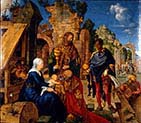
Twelve-year-old
Jesus
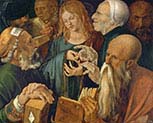
The Adoration of
the Trinity
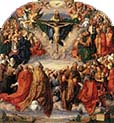
Self-
portrait

Dürer Self-
portrait

Large Piece
of Turf

The
Hare

Four
Apostles

Four
Apostles

Feast of the
Rose Garlands
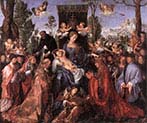
Elsbeth
Tucher

virgin with
the pear

Martydom of Ten Thousand

Detail
1

Detail
2

Detail
3

Melancholia
One

the knight death
and the devil

the architect
girolamo tedesco

Self-portrait
at Thirteen

Harowing
of Hell

Saint
Jerome

The Praying
Hands

Emperor
Maximilian I

the
Lamentation

The Artist's
Father

Self-portrait
at Twenty Two

Hieronymus
Holzschuher

jacob
muffel

Philip
Apostle

Saint
Jerome

Durer's
Father

Elector Frederick
the Wise of Saxony

The Suicide
of Lucrezia

Sylvan Men-with
Heraldic Shields

A
Man

Bernhard
von Reesen

Burkard
von Speyer

Man with Baret
and Scroll

Young Venetian
Woman

Jakob Fugger
the Wealthy

Oswolt
Krel

Mary
Praying

Madonna
and Child

Saint Anne with the
Virgin and Child
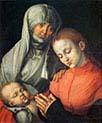
Virgin and Child
before an Archway

Adam
and Eve

Paumgartner
Altar

Emperor
Charlemagne
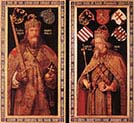
The Jabach
Altarpiece

Christ as the
Man of Sorrows

Head of
a Stag

The
Lobster

View of
Arco

The Wire-
drawing Mill

Willow
Mill
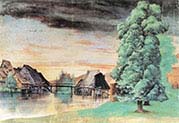
Innsbruck Castle
Courtyard

Lamentation
of Christ

Lot
Fleeing

Saint
Jerome

The Seven
Sorrows
